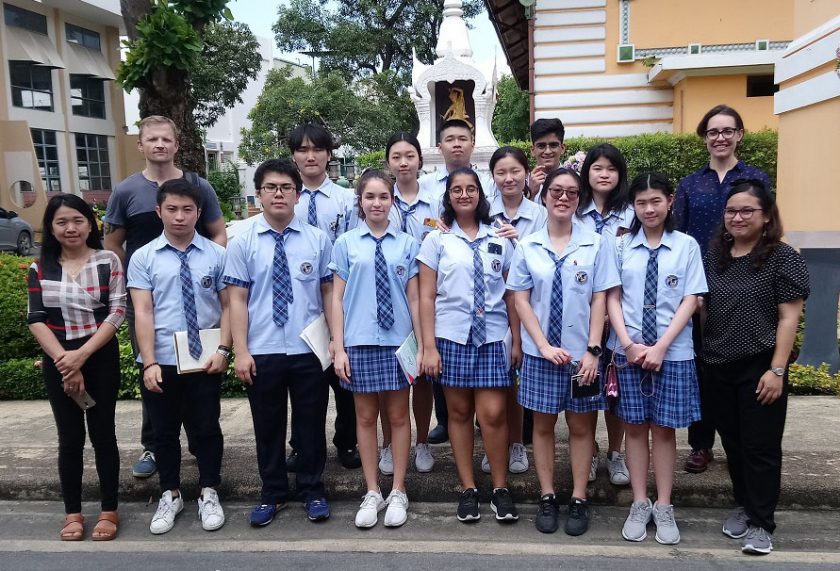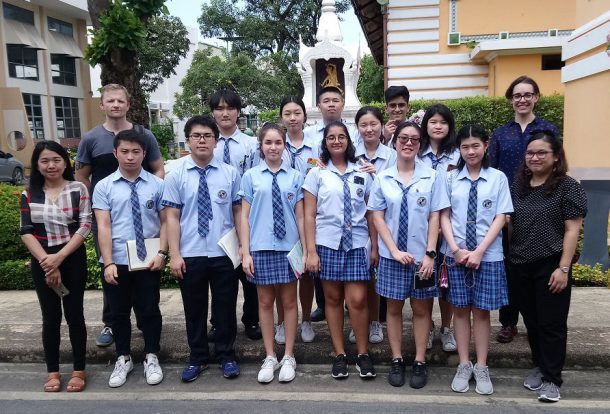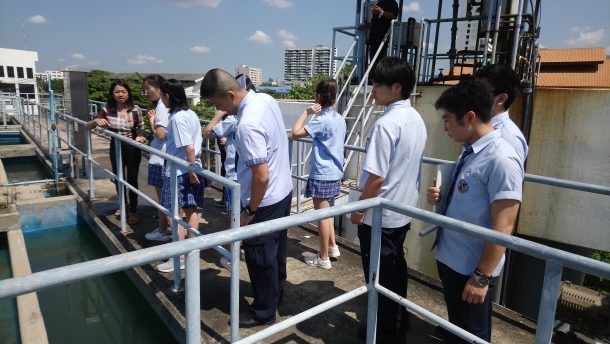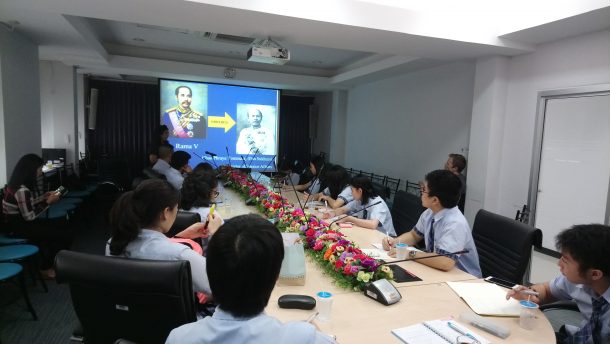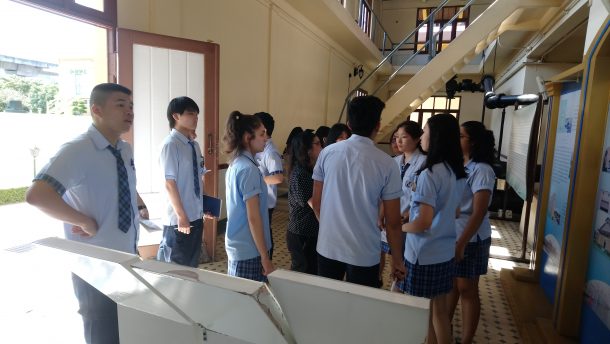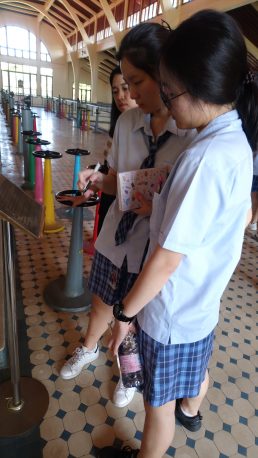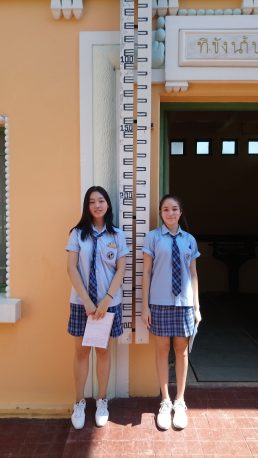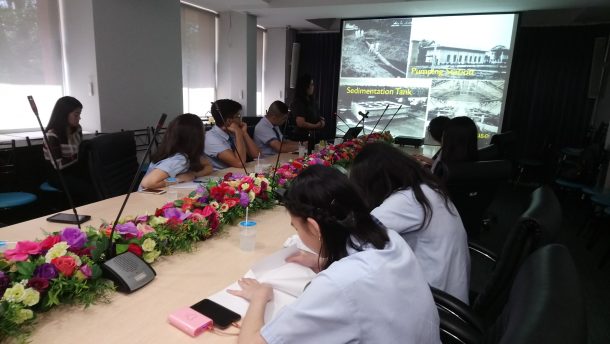Experiential learning – Global issues in a local context
Connections with UN Sustainable Development Goal 6: Water and Sanitation
In 2015, the UN set 17 goals for sustainable development worldwide known as the Sustainable Development Goals (SDGs). At Wells, our mission is to foster global citizenship in our students and build awareness of the issues so that each student becomes responsible global citizens. One goal that can be easily overlooked in a country that gets more than 1500 mm of rainfall on average a year is Goal 6: Water and Sanitation (read more at the UN SDGs site here).
To explore this issue on a local level the grade 12 Environmental Systems and Societies class went to the Metropolitan Water Works Samsen water plant. By building further awareness within our students of water management at a local city level, this can contribute to one of the SDG targets for Goal 6: “Support and strengthen the participation of local communities in improving water and sanitation management” (UN Sustainable Development, 2015). The objectives of the visit was to expose students to the process behind water sanitation practices within Bangkok to better understand this SDG from a local perspective, and help students reflect upon their own impacts at a personal level.
Student Reflections
Before the trip, many students admitted they are not aware of their daily water usage nor are they aware of how the water is managed or processed or distributed throughout Bangkok. Below are a series of their reflections after visiting the plant:
“I learnt the process of the fresh water system. It was something fascinating to learn where I get the water from….MWA has been managing this for a long time and how they solve some of the problems they face was something I didn’t expect….I used to think that Bangkok has enough water and that we were not going through any crisis. Now I understand that conserving water is rather important because water is being polluted, and the freshwater resource is decreasing. So start now before exit gets late.” – Rushitha
“At first, I thought that Bangkok water was always dirty because they don’t have a proper filtration process. But today, I realized that they do actually have professional treatment process. The person at the MWA said that we can actually drink the tap water. I’ve learned there are various processes in treating the water to be sent to houses or apartments… including Chlorine used for disinfectant, Alum used for removing fine particles…and polymers used for sedimentation.” – Soohee
“The trip to Samsen really allowed me to understand where my water is coming from. More importantly though, it made me realize how limited this resource is. The most interesting part of this trip was during Q&A when the staff revealed that the tap water in Bangkok is actually safe to drink according to WHO standards, however there is – and has always been – such a stigma around drinking it.” – Amy
“The trip to the Samsen Water Authority Trip was so beneficial for me as it gave me the opportunity to investigate and inquire more into the water purification process and factors that affect it, a topic on which I am basing my individual investigation on. It was really interesting to see how the MWA is taking steps to make their purification process more environmentally friendly. However, the best part about the trip was when we sat in a meeting room and got the time to ask them questions…” – Jai
After we visited, students collected water bills from their homes to better understand the amount of water they consume and the cost. Many were shocked by the amount of water each person uses and the low cost of water. By sharing their story, we all wish for everyone in the Wells community to consider his or her water usage to save both water and energy that goes into the filtration process.
Written by: Ms. Katherine & IB ESS Year 2 Students
